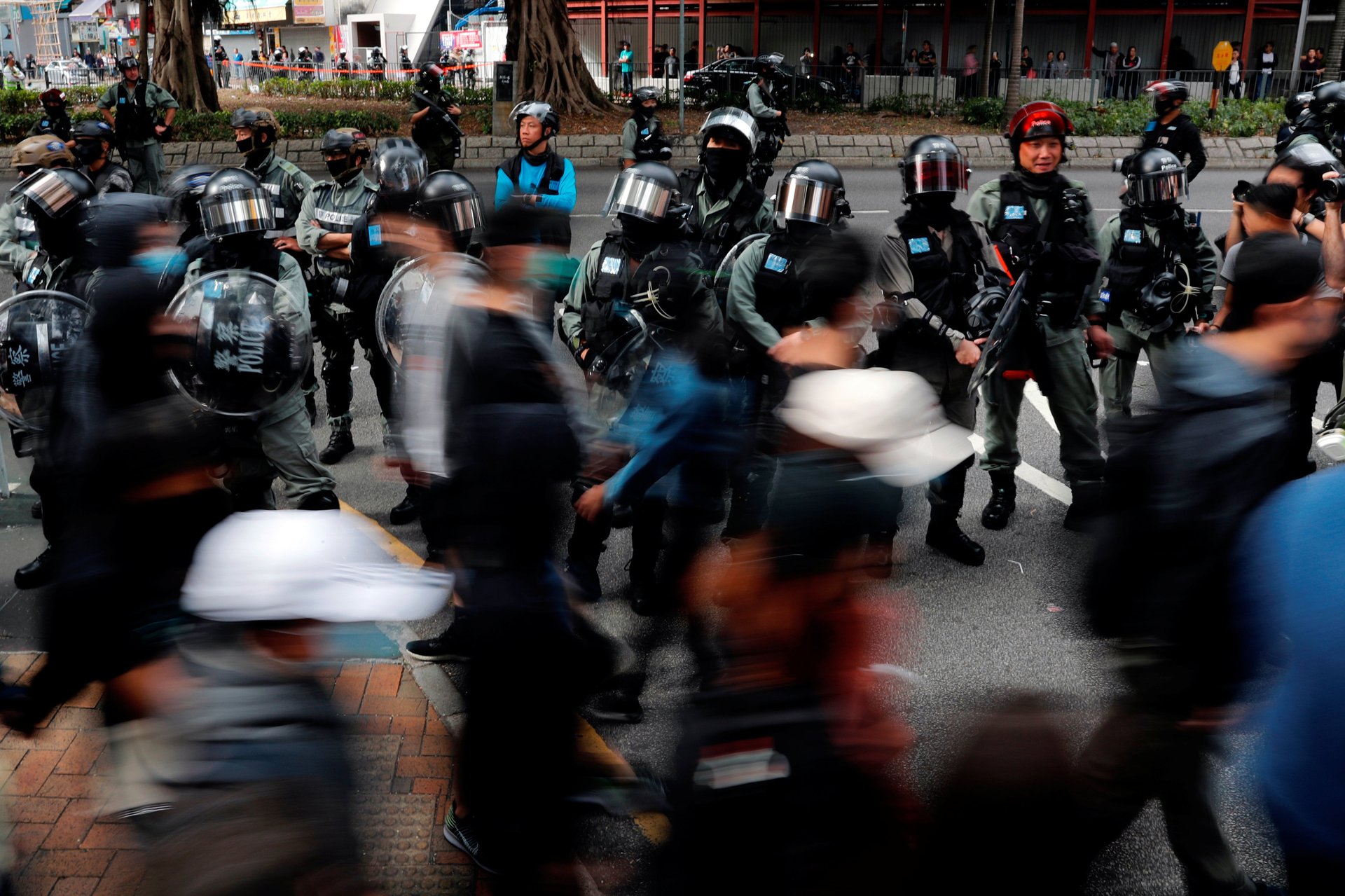Hong Kong’s political crisis is becoming a mental health crisis
A months-long crisis that has played out dramatically on the city’s streets is now morphing into something more invisible but equally urgent: an epidemic of mental distress affecting large swathes of the population.


A months-long crisis that has played out dramatically on the city’s streets is now morphing into something more invisible but equally urgent: an epidemic of mental distress affecting large swathes of the population.
According to a study published in the Lancet medical journal Jan. 9, roughly one in three adults in Hong Kong have reported symptoms of post-traumatic stress disorder (PTSD) in the months since large-scale protests started last June. One in five have reported probable depression or suspected PTSD, a level comparable to people experiencing large-scale disasters, armed conflicts, or terrorist attacks.
The findings are the result of a decade-long longitudinal study conducted by researchers from the University of Hong Kong, and they shed light on a major mental health burden borne by hundreds of thousands, if not millions, of citizens. The research, conducted between 2009 and 2019, draws on baseline surveys of more than 18,000 Hong Kong residents, which were followed up with seven surveys of random subsets of these adults.
Months of intense conflicts marked by violence from both police and protesters have torn at the social fabric and frayed familial ties, while what many see as an increasingly repressive political environment has heightened people’s sense of fear, helplessness, and anger. One local writer noted that there is now an entire generation in Hong Kong “defined and united by trauma.” And the protests have become all-encompassing, no longer confined to the streets and transforming political resistance into the new normal.
Indeed, the researchers found that those who spend more than two hours a day monitoring local socio-political news on social media was “strongly associated” with probable depression and suspected PTSD.
The mental health effects of the current protests are much more pronounced than from the 2014 Umbrella Movement, also known as Occupy Central, the last major pro-democracy protests in Hong Kong. The prevalence of PTSD symptoms is now more six times higher than after the 2014 protests, rising from 5% to 32%.
The researchers wrote that the mental health crisis “will require substantial increases in service surge capacity in both the health and social sectors, and in real time.” Yet they worry that those who need help most won’t get it, as fewer than half of affected individuals said they would seek professional care.
This could be exacerbated by people’s new wariness of the public health system, especially after police arrested several protesters as they were in hospital receiving medical treatment, raising suspicions that the Hospital Authority was leaking data to law enforcement officers—an accusation that the authority has denied.
Many protesters have instead sought informal care through an underground network of psychiatrists, physicians, and traditional Chinese medical practitioners (paywall).